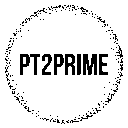I got into selling on Amazon FBA because honestly, I wanted a way to build an e-commerce side hustle without turning my garage into a cardboard jungle. Over time, I’ve realized that library sales and estate sales are pure gold for finding profitable inventory.
Undervalued books are everywhere at these events—you just need the right scanning tools and a game plan to scoop them up and ship them off to Fulfillment by Amazon for reliable profits.

Whenever I walk into a sale, I’ve got my scanning app, some extra tote bags, and a rough plan. I’ve learned to spot the high-value sections fast, and honestly, being friendly and asking about early access or bulk deals has paid off more times than I can count.
It’s not rocket science, but it does take a bit of prep. If you know where to look, what to bring, and how to negotiate without being that pushy reseller, you can turn these local events into a steady Amazon Seller Central income stream.
Key Takeaways
- Library and estate sales are some of the best places to source profitable books
- Preparation, scanning tools, and quick book evaluation matter
- Polite negotiation and small edges can add up to bigger profits
How to Find Sales in Your Area
I usually start by checking the most reliable places for sale listings, and I double-check the details before heading out. Having a few tools ready means I’m not wasting gas on wild goose chases.
Websites
Most of my leads come from Friends of the Library websites—library systems nearly always post their sale schedules online. If you’re lucky, you might even find early preview days or email alerts you can sign up for.
EstateSales.net and EstateSales.org are also clutch. They show upcoming estate sales, and the photos help me spot shelves loaded with books before I ever get in the car.
I’ll also hit up Craigslist in the garage sales section, searching for terms like “books,” “estate,” or “library” to filter out the noise.
To keep myself organized, I track sale dates, addresses, and little notes in a simple spreadsheet. It’s not fancy, but it means I don’t miss a good sale or show up on the wrong Saturday.
Community Boards
Local bulletin boards at libraries, grocery stores, and coffee shops are surprisingly useful. Some small-town library sales never make it online—they’re just a flyer taped up somewhere.
Sometimes, the front desk at the library has a printed schedule tucked away. I’ve gotten the inside scoop just by chatting with the librarian.
Churches and community centers sometimes host book fairs or donation drives too. They’re not always advertised online, so it pays to keep your eyes open.
If I see a flyer, I’ll jot down the number and call to confirm before I trek across town. That quick call has saved me from more than one wasted trip.
Apps
The EstateSales.net mobile app is a lifesaver. I can filter by zip code and scroll through photos instead of endless text listings.
I like using BookScouter too—not just for pricing, but to scan barcodes at sales so I know if buying in bulk is worth it.
For garage sales, Yard Sale Treasure Map pulls Craigslist listings onto a map. That way, I can plan a route and hit a bunch of stops in one morning.
If I’m eyeing a big batch, I’ll just ask, “If I take all these, can you do a better deal?” More often than not, the answer is yes—and I walk away with a trunk full of books and a better price per item.
Preparing for the Sale

To get the most out of these sales, I always plan ahead. The right gear, a set budget, and a simple strategy let me move fast and grab the best books before they’re gone.
Tools
I bring a solid book scanning app like ScoutIQ or Scoutly. They give me sales rank, average price, and profit margin in seconds. A Bluetooth scanner is nice, but honestly, my phone does the trick.
Portable battery pack? Absolutely necessary—scanning drains your phone quick. I also use sticky notes or removable labels to mark books I want, especially when checkout lines get long.
A sturdy bag or rolling cart saves my back, and for estate sales, I’ll sometimes toss in gloves or wipes if the books look like they’ve been in a basement for years. Cash is a must, since not every spot takes cards.
I don’t use Alibaba for books, but it’s on my radar if I ever branch into other products. Having the right stuff just makes the whole process smoother.
Budget
I set a spending cap before I walk in—seriously, it’s way too easy to go overboard when everything’s a dollar. My budget depends on my storage space and how fast I can flip the books to FBA.
I usually split my budget:
- High-value books (like textbooks or niche non-fiction)
- Lower-value fillers (fiction or common stuff that still moves)
If I spot a rare collectible, I might stretch the budget, but I avoid loading up on slow sellers. Always keep a little cash aside for those unexpected bulk deals.
I keep track of expenses in a basic phone spreadsheet—nothing fancy, but it keeps me from losing money without realizing it.
Strategy
Early bird gets the best books. At library sales, I’ll ask about line numbers or if early entry is a perk for members. Sometimes a cheap membership fee is totally worth it for first dibs.
Once inside, I head straight for non-fiction: textbooks, science, history. At estate sales, I check offices or studies first—valuable stuff tends to hide there.
Negotiating? I keep it friendly. If I’m taking a big box, I’ll ask, “Could you do a better price if I grab all these?” Most sellers are happy to move inventory quickly.
I don’t haggle over a single $1 book, but when I’m buying in bulk, it makes sense for everyone. Sometimes, being easy to work with gets me invited to future sales before the public even knows.
What to Look For
When I’m scanning stacks at a sale, I zero in on titles and editions that move quickly on Amazon. Not all books are created equal—some categories are just better bets for resale.
Genres That Sell Best
Some genres are almost always a win. Textbooks are king, especially around August and January when school’s about to start. Even older editions can sell if the topic’s still in demand.
Non-fiction is another sweet spot—business, self-help, health, history. For example, a solid personal finance guide will move way faster than another generic romance novel.
I keep an eye out for niche topics too—hobbies, cooking, DIY, or even guides for toys and games. They don’t move in huge numbers, but the buyers are loyal and often willing to pay up.
Most mass-market fiction I skip unless it’s hot on Amazon or part of a collectible set. There’s just too much of it out there, and prices tank fast.
If I’m on the fence, I’ll scan with ScoutIQ and check the product description, rank, and recent sales. It takes a few seconds and saves me from mistakes.
Editions That Sell Best
Edition matters—a lot. Latest editions of textbooks almost always fetch the best price, but sometimes older versions sell if the info hasn’t changed. Always double-check the ISBN.
Hardcovers usually hold more value than paperbacks, especially in non-fiction and reference. Collectors and libraries seem to prefer them, so demand stays steady.
Special editions—like anniversary prints, boxed sets, or limited runs—can be a hidden jackpot. They stand out on Amazon and sometimes go for more than the regular version.
When buying in bulk, I’ll ask, “If I take 20 books, could you do a better price per book?” Most sellers appreciate the straightforward ask, and I save a chunk of change.
If I want early access, I’ll see if there are paid memberships or volunteer spots. Sometimes that’s all it takes to get first pick before everyone else piles in.
Scanning and Evaluating Books Fast
Whenever I step into a library or estate sale, my phone’s out and loaded with a scanning app. The Amazon Seller App is my go-to, but sometimes I’ll fire up Jungle Scout or Helium 10 too—just to get a feel for demand and pricing trends.
These tools save me from tossing money at duds. I scan the barcode first if there is one.
If not, I’ll punch in the ISBN or even just the title. I’m looking at the sales rank, number of competing sellers, and what prices have done lately.
Watching sales over time paints a much better picture than just a single snapshot. Honestly, a book’s history matters more than a lucky moment.
I stick to a simple checklist to keep things moving:
- Good rank (lower is better—means it’ll sell faster)
- Decent profit margin after fees
- Condition (nicer copies move quicker, no surprise)
- Competition (too many sellers? Prices tank)
If I spot a box that looks promising, I don’t burn time scanning every single book before chatting with the seller. Usually, I’ll just ask, “Would you be open to a bulk price if I take several of these?”
Most folks like clearing space, and I end up with a discount more often than not. Sometimes I’ll even ask if there’s a way to look through books before the main rush.
Just being friendly and showing respect has gotten me early access more than once. That’s a huge edge when you want to grab the best stuff before the crowd rolls in.
Insider Tips
Honestly, a lot of success at book sales comes down to timing, how you handle bigger purchases, and the relationships you build. It’s those little tweaks that give you an edge over the competition.
Early Access
I always try to find out if there’s early entry for members or volunteers. Library sales often let “Friends of the Library” members in before the general public.
The membership fee? Usually pays for itself in the first hour. If I can’t get in that way, I’ll ask about volunteering.
Helping set up the sale gets me in early and lets me scope out the layout. If I know where the textbooks or rare stuff is, I can move fast when the doors open.
Arriving before the crowd is key. Some sales hand out numbers for your spot in line, so I check the process ahead of time.
Being near the front can mean snagging the high-value books before they vanish. It’s worth the extra effort.
Bulk Deals
When there’s a big pile worth buying, I never hesitate to ask for a bulk discount. I’ll usually say something like, “If I take all of these, could you give me a better price?”
Most organizers just want to move inventory. Here are a few approaches that have worked for me:
| Situation | What I Say | Why It Works |
|---|---|---|
| Large stack of books | “Would you take $20 for this box instead of $30?” | Shows I’m serious and saves them sorting effort. |
| End of sale | “If I clear this table, could we work out a deal?” | They want fewer leftovers. |
| Estate sale | “If I take the whole shelf, what’s your best price?” | Makes it easy for them to sell in bulk. |
I keep things polite and friendly. If they say no, I thank them anyway and buy what makes sense.
Respect really does pay off—sometimes even later on. People remember how you treat them.
Relationships
Building relationships with sale organizers? That’s a long-term win. At library sales, I introduce myself and ask about ongoing book rooms or donation bins.
Many libraries sell year-round, and knowing the staff sometimes gets me first dibs. At estate sales, I make sure to talk with the company running things.
If they know I’m a book buyer, they’ll occasionally give me a heads-up before the sale or set aside collections. That’s a big time-saver.
I’ll also follow up after a purchase—maybe just a thank-you email or a quick hello at the next event. It’s led to early notifications and even private buying chances.
Common Pitfalls to Avoid
Rushing through sales without a plan? That’s a recipe for wasted money and cluttered storage. If I don’t track what I buy, I wind up with duplicates or books nobody wants.
A big mistake is trusting my gut instead of using the scanning apps. If I skip checking sales rank and prices, I’ll probably pick up books that just sit around forever.
I also steer clear of ignoring customer feedback. If a book’s got a history of complaints—missing pages, bad quality, whatever—it can ding my seller rating.
Good reviews matter more than squeezing out a few extra sales. When I’m negotiating, I’ve learned that politeness goes a long way.
If I want a bulk discount, I’ll smile, explain I’m buying a bunch, and ask, “Would you be open to a better price if I take all of these today?”
Here are a few pitfalls I try to keep in mind:
| Pitfall | Why It Hurts | What I Do Instead |
|---|---|---|
| Overpaying for bulk lots | Cuts into profit margins | Negotiate respectfully for discounts |
| Skipping condition checks | Leads to returns and bad feedback | Inspect covers and pages quickly |
| Poor record-keeping | Confuses inventory | Use spreadsheets or apps to track purchases |
Frequently Asked Questions
I really lean on preparation, the right tools, and a few smart strategies whenever I’m out sourcing books. Knowing where to look, how to evaluate books fast, and how to approach sellers politely—it all adds up to more profit and less wasted time.
What are the best strategies for finding library and estate sales for sourcing books to sell on Amazon FBA?
I usually start by checking local library websites and community boards for upcoming sales. Estate sales often pop up on EstateSales.net or in local classifieds.
I also sign up for email lists from libraries and estate sale companies so I don’t miss any announcements. It’s easy to forget otherwise.
Can you recommend any reliable scanning apps for quickly evaluating the profitability of books at sales?
The Amazon Seller app is my mainstay since it hooks right into my seller account and shows fees and potential profits. ScoutIQ and Scoutly are also pretty popular—they’ll give you sales rank data and profit estimates on the spot.
Scanning barcodes with these apps is way faster than guessing. Saves me from a lot of mistakes.
How do I effectively assess the value of books when I’m at a library or estate sale?
I scan the barcode right away to check sales rank and profit margin. If there’s no barcode, I’ll search by title or ISBN in the app.
I always check the book’s condition too. Damage or markings can really eat into resale value, even if the numbers look good.
What tips do you have for negotiating prices at book sales to ensure I get the best deals?
Politeness is underrated. If I’m buying a big stack, I just ask if they’ll do a bulk discount.
Something simple like, “Would you take $20 for this box instead of pricing them individually?” Most sellers are open to it—especially if you’re friendly.
Are there any insider secrets to gaining early access to library and estate sales for book sourcing?
I sign up for library memberships or “Friends of the Library” programs whenever I can. Early entry is a pretty common perk.
At estate sales, I sometimes join the company’s email list or loyalty program. Building a good relationship with organizers has even gotten me invites to preview sales before the doors open.
Could you provide guidance on how to organize and plan my book sourcing trips to maximize efficiency and profit?
I usually map out my route in advance using a map app, aiming to hit several sales in one go. Why waste gas or time doubling back, right?
Before heading out, I make sure to grab enough cash, plus bags or boxes—nothing worse than having to pause to find supplies. I also set a spending limit for the day, which helps me stay focused on books that actually have solid profit potential.


